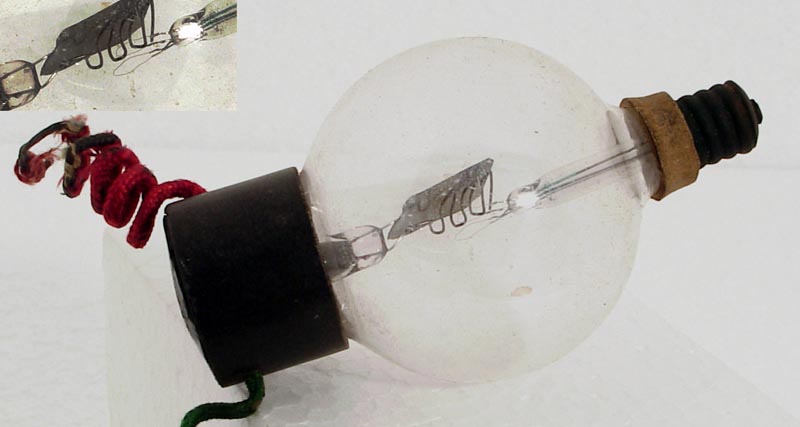|

The Audion
Carborundum was the preferred detector in commercial practice for many years after the advent of de Forest's triode in 1906. This preference continued until after 1912, when the invention of the reaction or regenerative circuit brought on the era of modem radio.
It is worthwhile keeping this period of history straight because there is an important lesson to be learned from it. For six long years, the secret of modern radio lay obscured by de Forest's erroneous explanation of how the triode operated; ie, that positive or negative voltages applied to the grid produced alike a reduction in the current through the tube. This theory was accepted as the explanation of the detection process that was observed. It precluded the idea of amplification, a thought which might have occurred to someone if the grid voltage/plate current relationship had been correctly stated, and it had the result that for years no one made a serious study to find out how the 'audion' really worked.
The use of the triode in commercial practice was confined to that of detection, perhaps 50 per cent more effective than the crystal, a point of so little importance that not a tenth of one per cent of the stations in operation were fitted with it. Seven leading textbooks, published before 1914, comprising in all over 3,000 pages, devoted less than one page of aggregate space to the 'audion'!
The lesson is clear-anyone of us with a Volt meter and potential divider to apply known voltages to the grid of a triode, and a galvanometer to measure the changes in its plate current, could have started unravelling the 'audion's' mysteries long before we did start-had we not known too many things that were not so. The present generation is learning the same lesson over again from the advent of the transistor. We had the crystal for a longer period of time than we had the triode without suspecting its major use could be anything other than a detector; until the man appeared who questioned what everyone else 'knew'.
Where could we find better examples of the wisdom of those immortal words set down four centuries ago? 'There are more things in heaven and earth, Horatio, than are dreamt of in your philosophy'.
(Hamlet, Act I, Scene 5).
EDWIN H. ARMSTRONG.
Columbia University, New York, USA
|